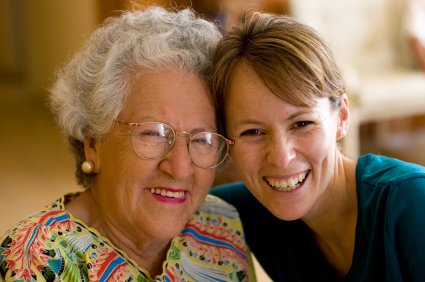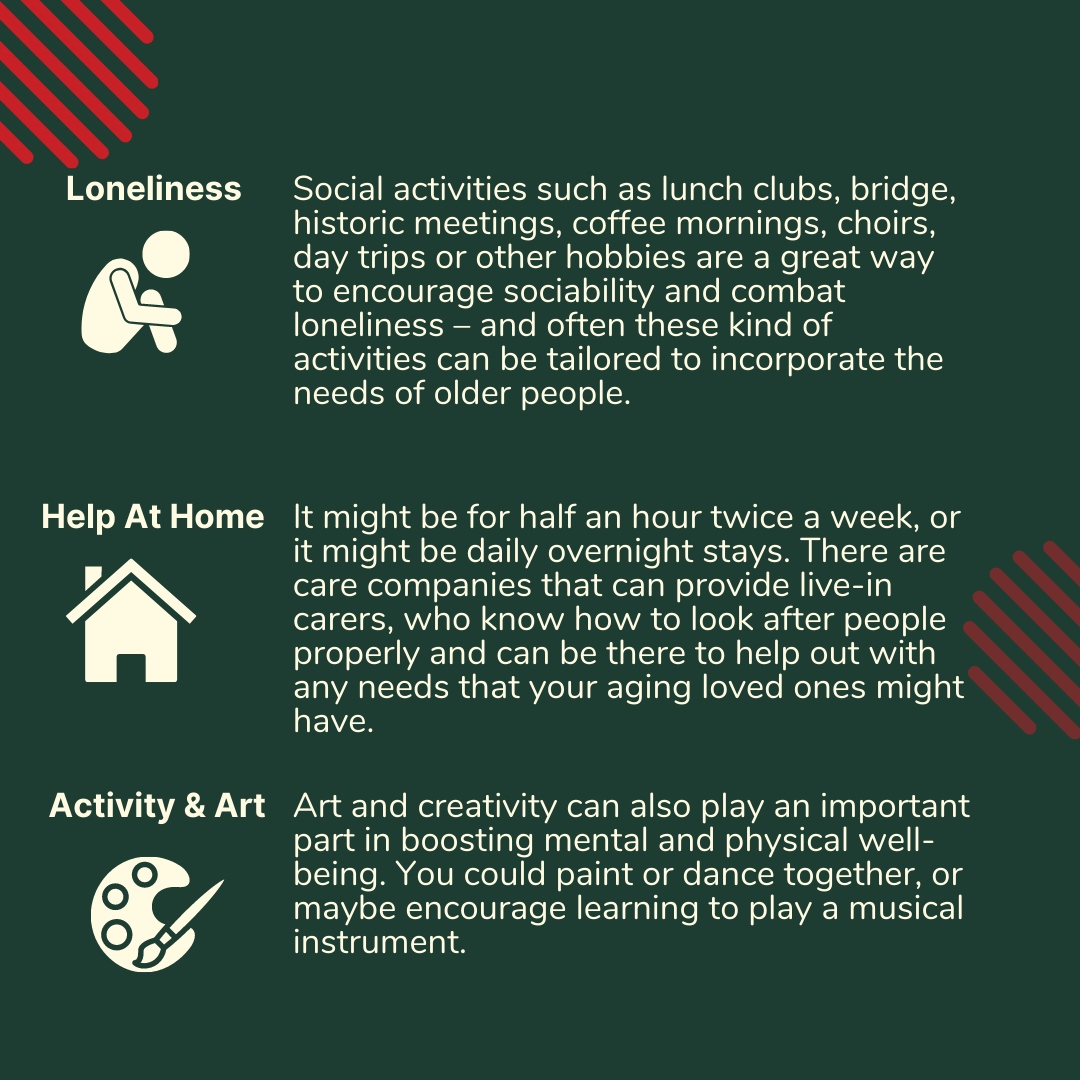Caring for aging parents is more common than ever before.
 Care of the elderly in today's society is an increasingly important issue, especially with higher life expectancy and an aging society. Whilst it is easy to see the challenges which are faced by society when it comes to the welfare of our own parents, suddenly they become very real as we see how it all impacts on those who we love.
Care of the elderly in today's society is an increasingly important issue, especially with higher life expectancy and an aging society. Whilst it is easy to see the challenges which are faced by society when it comes to the welfare of our own parents, suddenly they become very real as we see how it all impacts on those who we love.
According to
Carers UK, 1 in 8 adults in the UK at the moment care for family or friends, and they are predicting that by 2035, the number of adults over the age of 85 who will need round the clock care will double – to a staggering 450,000 people.
Looking after our elderly parents is a priority for many people – it was, after all, them who looked after most of us when we were growing up. However, it can put a strain on our lives both in terms of stress and time, as well as financially. It is important, therefore, to make sure that what you are doing to help to look after your aging parents is effective.
Of course, different people have different needs, so it is important to be aware of your loved one’s specific issues and needs to give them as comfortable a life as possible.
Loneliness
One of the biggest issues that face older people in today’s society is
loneliness. It might be due to the loss of a partner or decline in mobility, for example, that people suffer from isolation. This can lead to mental health issues as well as a reduction in quality of life. It is therefore important that you as a family try to both encourage activities which might reduce loneliness as well as be around your aging parents as much as possible.
Social activities such as lunch clubs, bridge, historic meetings, coffee mornings, choirs, day trips or other hobbies are a great way to encourage sociability and combat loneliness – and often these kind of activities can be tailored to incorporate the needs of older people.
Regular visits from the family, inclusion, and arranging visits with parents can also be extremely valuable.
Help at Home
There are some activities and chores that become more difficult to do properly as we get older. Tasks such as cleaning, cooking and accurately taking medication can become problematic and for some people, the best solution to this is to ask for a caregiver to come to their home.
It might be for half an hour twice a week, or it might be daily overnight stays. There are
care companies that can provide live-in carers, who know how to look after people properly and can be there to help out with any needs that your aging loved ones might have.
It might seem that you could do this yourself, but by having a caregiver attend these needs of your parent, you are free to be more flexible over times, and ensure that the time that you spend with your loved one is enjoyable.
Activity and Art
Research has shown that activity is important as we get older. It is true what they say when they say that it keeps us young. Try to keep your parents as active as possible (within reason) to reduce the risk of getting a number of health problems including heart disease and dementia. Walking or playing with children is a great way to stay active.
Art and creativity can also play an important part in boosting mental and physical well-being. You could paint or dance together, or maybe encourage learning to play a musical instrument.
Support
It is important to remember that although people are getting older, they are still capable adults. Try to support them through the process of perhaps being less able to do everything that they used to – but without treating them like a child.
Independence is important for many people. Ensuring that they have a mobile phone or watch alarm system can enable people to still be independent whilst keeping your mind at ease that you can be contacted should anything happen.
Look After Yourself
It can be easy to get so caught up in looking after someone else that you forget to look after yourself. Mental health problems can be a serious issue for many caregivers – especially if they are family members, and, frankly, if you are not well, how can you adequately look after someone else? Make sure that you look after yourself both physically and mentally so that you can care for your loved ones properly too.
Mindful medication can help a lot!
Being able to look after our aging parents is a concern for many of us. However, there is help out there – be it through letting a care company take some of the weight or by using other support groups. By understanding the needs of older people better, we can ensure that the time that we spend with our loved ones and the effort that we put in is as effective as possible.
5 Tips for Caring for Aging Parents
There comes a point where the people who took care of you growing up might need your help later in life.
Caring for an aging parent is something that a lot of us will go through at some point in our lives. In some cases this can mean a large sacrifice of time and money, which can lead to stress and possibly even resentment. Here are five tips to help you through it.
- Try to establish a routine
Establishing a routine helps everyone know what to expect. It also allows you to see “warning signs” more quickly so that you can take action if it is needed. You’ll be able to notice slight changes more easily. This also takes stress off of you by balancing your time and responsibilities and avoid anxiety and exhaustion.
2. Understand the costs and create a budget
Take a comprehensive look at what you are spending or estimate what you would be spending on caregiving. This is also a great point to explore free options or low-cost public benefits that can be available to you and help share the caregiving tasks. If your parents need extensive help or have a special need, it is also the right time to consider professional help and find out how much it would cost and what benefits it provides.
3. Set Boundaries
Setting boundaries is never an easy thing.However, if no boundaries are set with caregivers, then it’s easy for you to burn out. Healthy boundaries help set expectations and make sure everyone’s needs are being met. It also helps you maintain a healthy relationship with your parent by respecting those boundaries.
4. Communicate
Creating open lines of communication with everyone involved, including other siblings and between you and your parents will help make the process easier. This helps you anticipate difficult decisions and what the best choices would be for your family before the situation turns into a crisis. It is also important to be very clear about who is responsible for financial decisions. This avoids conflict down the road.
5. Planning Ahead
Not all needs can be anticipated and even when you are a caregiver, you need to be ready for many different situations.One way to do this is to put preventative measures in place so you don’t feel like you need to be hovering over them all the time and still give them a sense of independence. Our Home & Away system with GPS can immediately alert authorities if there is an issue that requires assistance so you can have peace of mind while taking care of your aging parents.
 Care of the elderly in today's society is an increasingly important issue, especially with higher life expectancy and an aging society. Whilst it is easy to see the challenges which are faced by society when it comes to the welfare of our own parents, suddenly they become very real as we see how it all impacts on those who we love.
Care of the elderly in today's society is an increasingly important issue, especially with higher life expectancy and an aging society. Whilst it is easy to see the challenges which are faced by society when it comes to the welfare of our own parents, suddenly they become very real as we see how it all impacts on those who we love.


